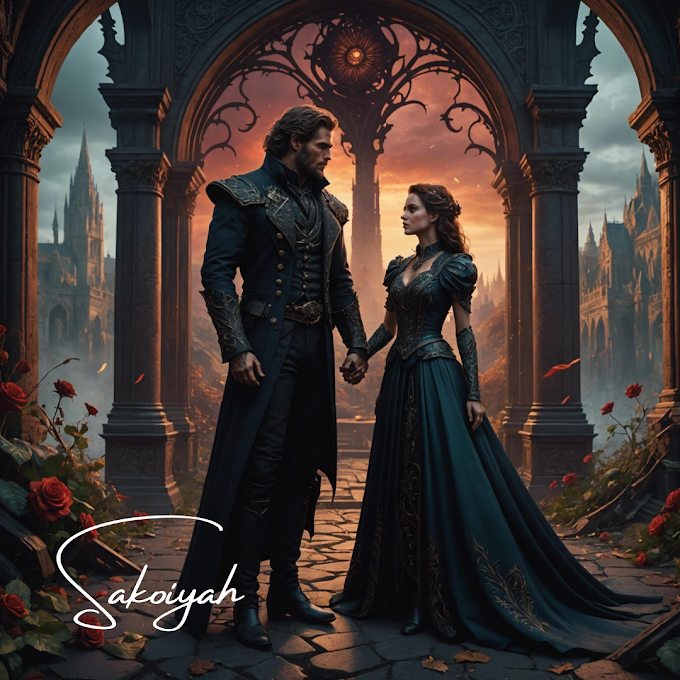As a writer, creating believable and compelling characters is a vital aspect of storytelling. Characters that feel real and relatable can make or break a story, captivating readers and drawing them deeper into your narrative. One effective way to develop well-rounded characters is by asking them probing questions. By delving into their thoughts, desires, fears, and experiences, you can breathe life into your characters and make them resonate with your audience. This blog post will explore 21 essential questions to ask your characters during development.
1. What is your character's backstory?
Understanding a character's past is crucial to shaping their
present. Explore their childhood, upbringing, and significant life events that
have shaped who they are today.
2. What are your character's goals and
aspirations?
Every character should have a driving force that motivates
their actions. Determine what your character wants to achieve and what they are
willing to do to reach their goals.
3. What are your character's fears and
insecurities?
Dig deep into your character's fears and vulnerabilities.
Identifying their weaknesses will help you create conflict and allow for growth
throughout the story.
4. What are your character's strengths and
talents?
Highlight your character's unique abilities and talents.
Understanding what they excel at will allow you to showcase their skills and
create opportunities for them to shine.
5. What are your character's core values?
Identify the principles and beliefs that guide your
character's decisions and actions. These values will shape their moral compass
and influence their interactions with other characters.
6. What are your character's relationships like
with family and friends?
Explore the dynamics between your character and their loved
ones. Understanding their relationships will add depth to their personality and
provide opportunities for character growth.
7. What is your character's worldview or
philosophy of life?
How does your character perceive the world around them? Do
they have a particular philosophy or perspective that colors their experiences
and choices?
8. What are your character's hobbies or
interests?
Discover your character's hobbies, passions, or recreational
activities. These details will add depth and complexity to their personality,
making them more relatable to readers.
9. What is your character's occupation or role
in society?
Consider the profession or social role your character
occupies. This will provide insight into their skills, responsibilities, and
how they interact within their community.
10. How does your character handle stress or
conflict?
Explore your character's coping mechanisms when faced with
difficult situations. Understanding their reactions will help you craft
realistic responses during tense moments.
11. What is your character's sense of humor
like?
Humor can reveal a lot about a character's personality. Determine
whether your character is quick-witted, sarcastic, or has a particular comedic
style.
12. What are your character's physical
attributes and appearance?
Develop a visual representation of your character by
defining their physical features, including height, build, hair color, and
distinctive traits. This will aid in creating a vivid mental image for your
readers.
13. What are your character's ambitions and
dreams?
In addition to immediate goals, consider the long-term
ambitions and dreams your character harbors. This can add depth and complexity
to their desires and motivations.
14. How does your character handle success or
failure?
Understanding your character's attitude towards success and
failure will influence how they navigate challenges and setbacks throughout the
story.
15. What are your character's secrets or hidden
aspects?
Every character has secrets that shape their behavior and
influence the plot. Uncover hidden aspects of your character's past or
personality that will add intrigue and suspense to the story.
16. How does your character interact with
authority figures?
Examine your character's relationship with authority figures
such as parents, bosses, or mentors. This will provide insight into their respect,
rebellion, or obedience level.
17. What are your character's favorite and
least favorite things?
Discover your character's preferences, such as favorite
foods, music, or colors. Likewise, explore their pet peeves and dislikes to add
realistic nuances to their personality.
18. What are your character's internal
conflicts?
Delve into your character's internal struggles and dilemmas.
These conflicts can drive the emotional arc of your story and make your
character more relatable.
19. What are your character's motivations for
change or growth?
Identify the catalysts that prompt your character to evolve
throughout the narrative. Whether overcoming a fear or seeking redemption,
motivations for change add depth to their journey.
20. How does your character's past affect their
present decisions?
Examine the influence of your character's past experiences
on their decision-making process. This will help you create authentic and
consistent character actions and reactions.
21. What lessons or messages do you want your
character to embody?
Consider the broader themes and messages your story aims to
convey. Define how your character's development aligns with these themes and
what lessons they ultimately represent.
Conclusion
Asking these 21 questions to your characters during the
development process can help you create rich, multi-dimensional individuals
that resonate with readers. By understanding your characters more deeply, you
can write authentic dialogue, craft compelling story arcs, and immerse your
audience in your fictional world. So, take the time to explore and question
your characters, and watch them come alive on the pages of your story. Happy
writing!




.png)

.png)




0 Comments